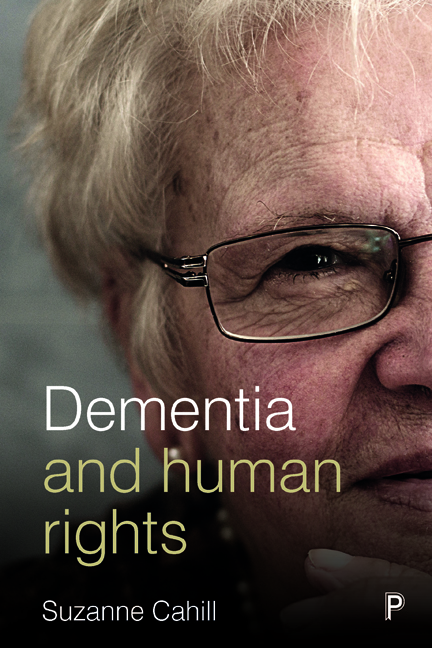four - The right to a good quality of life at home and in the community
Published online by Cambridge University Press: 22 April 2022
Summary
In 2006 I had a mild head injury which resulted in my seeing three doctors and taking a Mini-Mental State Examination test and other neurological testing. I was told by my neurologist that I had a head injury; however, the other two doctors suggested I may have Alzheimer's disease which could be brought about sooner because of my head injury. I struggled for a few more years and was informed there is no definitive test for Alzheimer’s. I subsequently took another opinion in 2011 due to my inability to cope and was diagnosed with early onset Alzheimer's in 2012 at the age of 62 while I was busy working and planning my retirement. It was like a slow realisation that a creeping fog had descended on your life and it was there for good….
A flurry of visits to the doctor and the consultant followed, as I tried to come to terms with the diagnosis, but there was yet another blow to come. More bad news; the threshold age for early onset Alzheimer's support is 65. For anyone diagnosed with early onset dementia-related illnesses before their 65th birthday, there is nothing, and I mean nothing at all; no support services, nowhere to go, no one to give you advice or tips on how to proceed. For me, having spent my adult life campaigning for human rights, this was inconceivable. I couldn't believe that because of a random number, I would be ignored. Worse still, refused all help and services. But I didn't have the strength or will to fight it. I retreated. I felt helpless for the first time in my life, no plan, no ideas and no strategies.
Those first few months were spent grappling with heartbreak, and although I still felt my career and voluntary work defined who I was, and how I was thought of in the community, I was too ashamed to mention my condition to anyone. I was more than aware of the stigma associated with it. I felt there was nobody to turn to except the internet. I wish somebody had been there to hold my hand and explain to me Alzheimer's is not just about memory, that it impacts our ability to accomplish daily tasks, that it hinders our thinking process and the horrendous pain that agitation brings, not just to me, but to my family.
- Type
- Chapter
- Information
- Dementia and Human Rights , pp. 71 - 98Publisher: Bristol University PressPrint publication year: 2018



